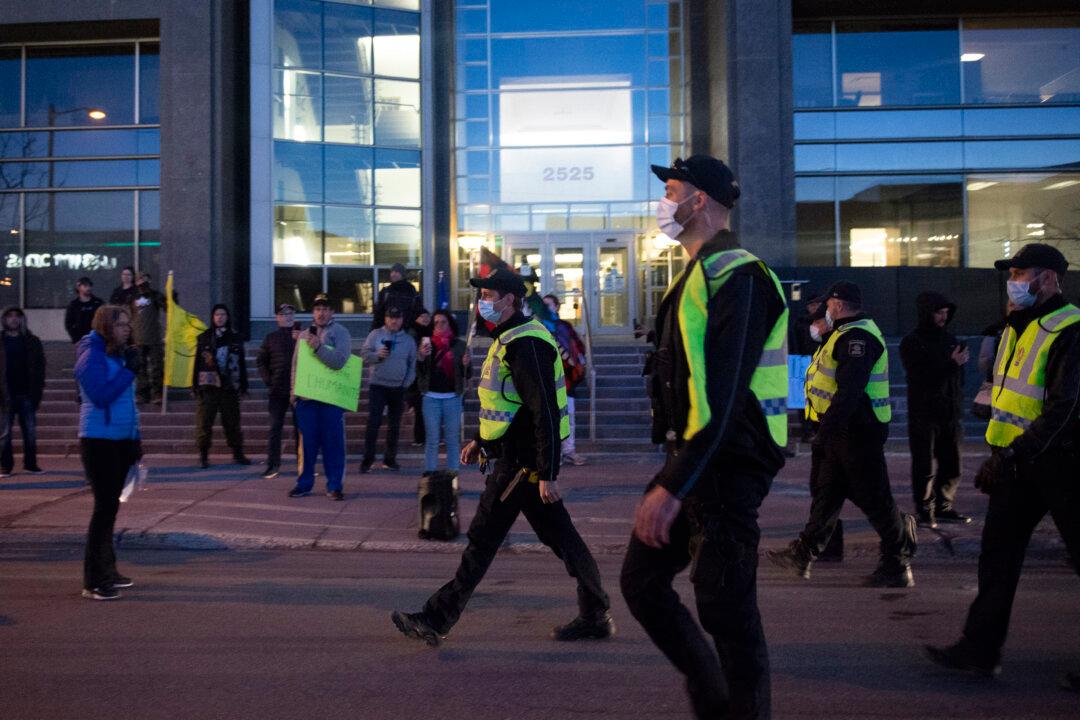The Quebec government issued tens of thousands of fines to residents for not complying with its pandemic restrictions, but a new report finds that this “punitive” approach did not necessarily slow the spread of COVID-19.
“Québec chose to turn the public health crisis into a public safety crisis, managed with 46,563 police interventions,” concluded the report, conducted by four researchers from the University of Montreal’s Profiling Observatory (l’Observatoire des profilages) and released on March 10.





